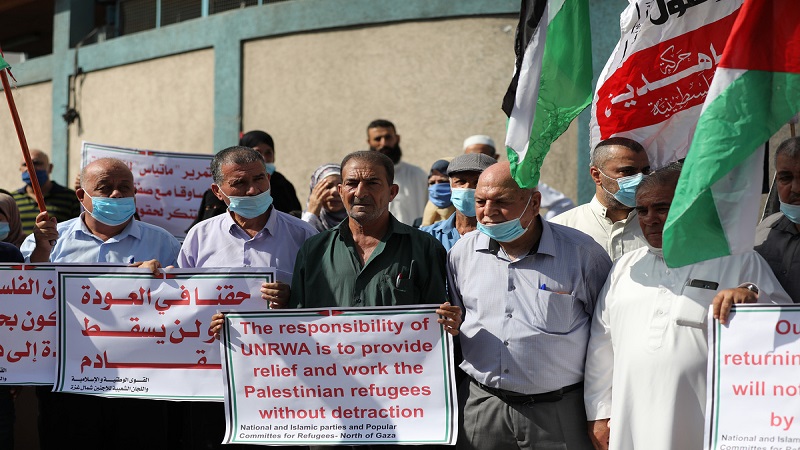The Palestinian Islamic Resistance Movement Hamas announced on Wednesday that the financial crisis of the United Nations Agency for Palestine Refugees (UNRWA) is “man-made” and its main goal is to “abolish the refugees’ issue and dismantle the UN agency.”
“The Hamas movement is extremely concerned about UNRWA’s announcement by the agency’s Commissioner-General Philippe Lazzarini that the UN body has decided to partially postpone the payment of salaries of almost 28,000 employees in five operation fields,” Hamas communicated in a statement.
The statement added: “We believe that such a decision has dangerous repercussions on thousands of Palestinian families and may affect the quality of life of the Palestinian refugees living in the custody of UNRWA, especially amid the urgent circumstances linked to the outbreak of coronavirus,” pointing out that Gaza “has been suffering from a humanitarian crisis for 14 years due to the crippling Israeli siege.”
The movement continued: “This man-made financial crisis has political grounds and is intended to abolish the refugees’ issue and dismantle the UN agency. This crisis must not be solved at the expense of the refugees and the humanitarian services offered by the UN body.”
Hamas stressed that the international community represented by the UN: “Should shoulder its responsibility towards the mandate given to UNRWA, until the issue of the Palestinian refugees is fully settled after return and compensation.”
It reiterated that the issue of the Palestinian refugees: “Is the essence of the freedom struggle against the Israeli occupation and any attempt to leave this issue unsolved will affect the security and stability inside and outside of Palestine.”
Concluding its statement, Hamas urged: “The UN should not bow to the pressure piled on it. Rather, it should work to improve the lives of the refugees in line with international resolutions that guaranteed a decent life for the refugees until return to the hometowns and villages from which they were forced out in 1948.”
Source: Middle East Monitor






 WhatsApp us
WhatsApp us 

